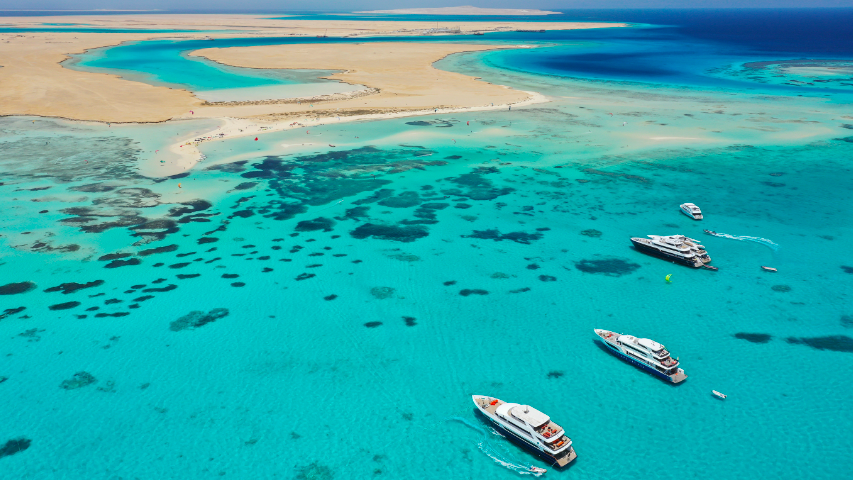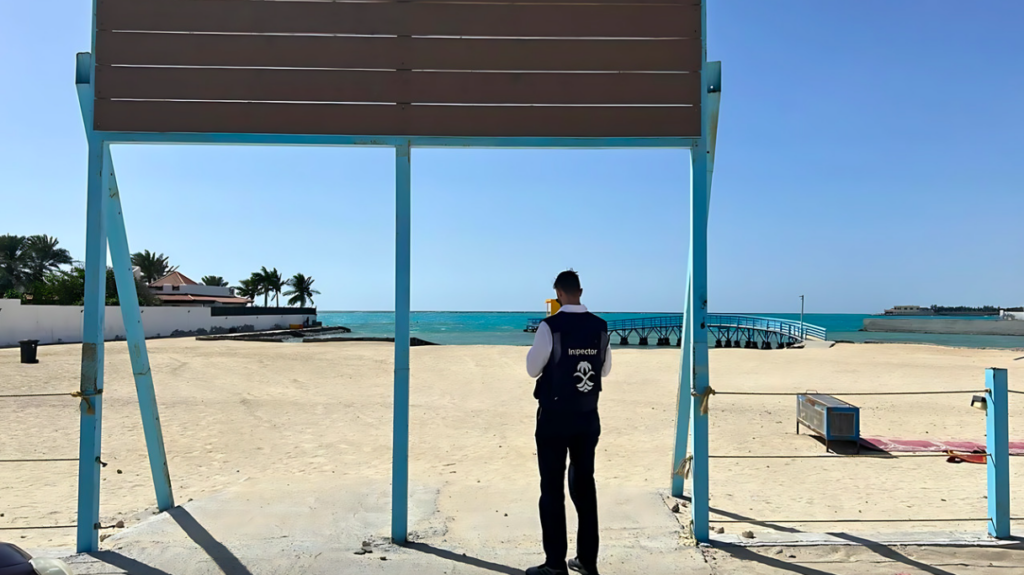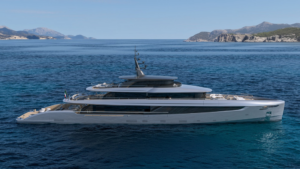Saudi Red Sea Authority vision mixes superyachts, tourists and sustainability

The Saudi Red Sea Authority (SRSA) is striving to take its place in Saudi Vision 2030, which includes diversifying the nation’s economy beyond oil and gas. The SRSA was established in 2021.
The organisation says it’s dedicated to providing a unique experience for tourists in the Red Sea. To achieve this, it says it’s fostering an attractive investment environment (particularly to small and medium enterprises), setting model infrastructure standards, and creating ‘prestigious / luxury’ coastal tourism destinations. It aims to achieve sustainable tourism and effective governance within the coastal tourism system.
SRSA predicts its tourism push will contribute approximately 85 billion riyals (just shy of £17.5 billion) to the GDP by 2030, capturing 30 per cent of the kingdom’s leisure tourism and 40 per cent of total entertainment spending, attracting 19 million tourists, and generating more than 210,000 jobs.
Sustainability is a buzzword around its endeavours (earlier this month, SRSA issued Saudi Arabia’s first-ever yacht regulations, setting guidelines for yacht operations, tourism licenses, and environmental protection). According to SRSA, measures are being implemented to ensure the coexistence of luxury tourism and environmental preservation. And as part of that, it’s being transformed into a global destination for luxury superyacht tourism.
Superyacht concierge and maritime services agency BWA Yachting recently announced the launch of its operations in Saudi Arabia, as part of its continued expansion within the Middle East. In partnership with Faisal M. Higgi & Associates. The company will provide superyacht services across several key yachting destinations in the country including Yanbu, along with Jeddah, Jizan, Rabigh, Duba, Dammam, and Sindalah (NEOM).
“We are on a mission to make the Red Sea available for superyachts while ensuring sustainability,” Mohammed Al Nasser, CEO of the Saudi Red Sea Authority, says.
“We have the advantage of being able to innovate and not merely replicate other destinations.
“The coexistence of super yachting and the environment is going to be a very healthy and innovative approach.”

Regulating the Red Sea’s more than 1,800km coastline, known for its rich biodiversity and cultural heritage, presents unique challenges.
Al Nasser highlights the importance of collaboration with the superyacht industry and adopting global best practices. “We have the advantage of being able to innovate and not merely replicate other destinations,” he says.
SRSA expects to witness significant developments over the coming years. New marinas, destinations, and initiatives will continue to roll out.
Saudi Arabia officially opened its doors to international tourists in September 2019. This marked the first time the kingdom offered tourist visas, as part of its Vision 2030 plan. The country launched an online visa system for citizens from 49 countries and made significant efforts to promote its cultural and natural heritage sites. However, it continues to be vilified for its implementation of the death penalty, women’s rights, freedom of expression and the conflict in Yemen. Plus, the country has been accused of using sports sponsorship to try to detract from its record on the above.
SRSA has been asked to comment.











